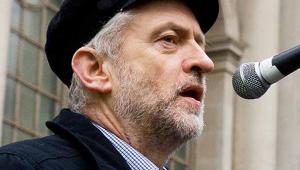In a major speech in Peterborough yesterday, Corbyn promised “to address the excess that drives the poverty pay that leaves millions in poverty even though they work”. Earlier in the day, Corbyn had been expected to suggest a ‘maximum wage’ limit, but this was absent from his speech in the afternoon.
Instead, he credited former prime minister David Cameron with proposing a 20:1 pay ratio “to limit sky-high pay in the public sector”, and observed that all salaries higher than £150,000 must now be signed off by the Cabinet Office.
But Labour would go further, he said, and “extend that to any company that is awarded a government contract”.
He went on: “It cannot be right that if companies are getting public money that that can be creamed off by a few at the top.”
Corbyn suggested introducing tax breaks for companies that limit the pay of employees to a given multiple of the lowest earner.
He also proposed a shake-up of public sector contracts, in which “all firms with a government or council contract over £250,000 will be required to pay tax in the UK and train young people”.
Moreover, no company would receive taxpayer-funded contracts if it, or its parent company, was headquartered in a tax haven, he said.
“And we will not buy outsourced public services, such as care for the elderly, from companies whose owners and executives are creaming off profits to stuff their pockets at the expense of the workforce and the public purse.”
Corbyn said: “This is not about limiting aspiration or penalising success, it’s about recognising that success is a collective effort and rewards must be shared.”
Elsewhere, he said the Conservatives’ preparations for negotiations with Europe on Brexit were in “disarray”, but confirmed that the Labour Party would not block the motion to trigger Article 50.
On immigration he stated: “Labour is not wedded to freedom of movement for EU citizens as a point of principal, but I don’t want that to be misinterpreted, nor do we rule it out.”
Meanwhile, the rights EU citizens already in the UK would be guaranteed and Corbyn confirmed the Labour party would “push to maintain full access to the European single market to protect living standards and jobs.”
He accused the government of hiding behind EU state aid rules to avoid intervening in the economy, referring to the crisis that hit the steel industry last year. “Other governments in Europe acted and saved their industry, the Tory government here sat back.”
Instead, Corbyn promised to “use state aid powers in a drive to build a new economy, based on new technology and the green industries of the future.”
As such, he restated the Labour aim to develop a National Investment Bank and regional investment banks, and pledged “a massive programme of investment that will be needed to rebuild regional economies.”
He also attacked the government’s decision not to increase spending for the health and social care system, which he said was “failing to provide essential care for people with disabilities and over a million of our elderly people.
Referring to the government’s decision maintain current funding levels, Corbyn pledged to rebuild the NHS “by ending the under-funding and privatisation of health care”. He also insisted Labour would reject pressure to privatise public services as part of the Brexit settlement.


















